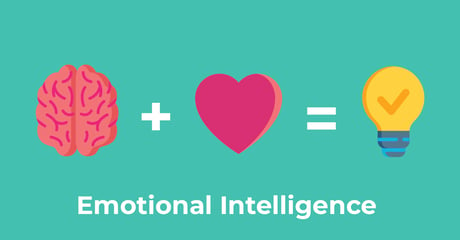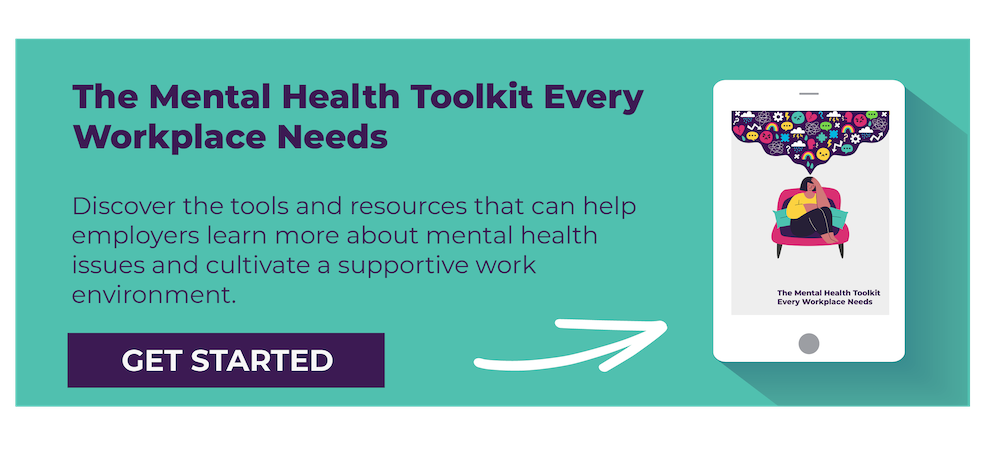 Great leaders know that taking care of their team is just as important as achieving great results. But finding the right balance between productivity and avoiding burnout can be tricky. Luckily, Daniel Goleman, an expert on emotional intelligence, has developed a compelling framework to help leaders navigate this terrain effectively.
Great leaders know that taking care of their team is just as important as achieving great results. But finding the right balance between productivity and avoiding burnout can be tricky. Luckily, Daniel Goleman, an expert on emotional intelligence, has developed a compelling framework to help leaders navigate this terrain effectively.
Goleman, the author of the influential book 'Emotional Intelligence: Why It Can Matter More Than IQ' and his latest work 'Optimal,' shares insights on how leaders can use emotional intelligence to create work environments where employees thrive. His teachings are particularly relevant for leaders looking to boost morale, enhance team dynamics, and build a culture of resilience and satisfaction.
In this article, we'll explore the essential elements of emotional intelligence, its significance in the workplace, and techniques for leaders to foster an emotionally attuned workforce.
What Exactly is Emotional Intelligence?
Most of us have experienced moments of high performance, but those times are often fleeting. For every good day, we may have a hundred less satisfying ones. The good news is that there are practical steps we can take to improve our days consistently.
According to Goleman, emotional intelligence is the hidden ingredient in a person’s optimal state. Here’s how he breaks it down:
- Self-Awareness—means knowing what you’re feeling, why, and how this shapes your perception, thoughts, and impulse to act;
- Self-Management—lets you more quickly recover from upsets and marshal positive feelings like optimism, plus keeping your meaningful goals in mind and staying agile;
- Social Awareness—refers mainly to empathy, sensing how the other person or a group thinks and feels, plus caring about them;
- Relationship Management—means being adept at influencing and inspiring others, coaching or mentoring, resolving conflicts, and being an effective team member.
Think of emotional intelligence as your emotional toolkit for the workplace. It's built on four magical skills: self-awareness, self-management, social awareness, and relationship management. These aren't just good for your personal life; they're the keys to less stress, smoother conversations, and stronger team bonds at work.
Here’s how it plays out:
- Stress Be Gone: Feeling frazzled? Emotional intelligence to the rescue! Understanding and managing our emotions helps us approach sticky situations with a cool head, making the office a zen place to be.
- Talk the Talk: Ever wished for fewer misunderstandings at work? High emotional intelligence means you're a communication wizard, able to share your thoughts and feelings in a way that's crystal clear and kind.
- Empathy, Please: Walking in someone else's shoes isn't just for fairy tales. Empathy makes us more understanding and supportive teammates, creating a work environment where everyone feels like they belong.
- Bounce Back Like a Pro: Life threw you a curveball? No problem! Emotional intelligence arms you with resilience so you can adapt, overcome, and keep moving forward.
Enhancing Emotional Intelligence
Building your emotional intelligence is a powerful way to enhance your daily experiences, improve your interactions with others, and lead a more fulfilling life. Here are seven ways how you can cultivate your emotional intelligence for better days:1. Practice Self-Awareness
- Reflect on Your Emotions: Start by recognizing and naming your emotions as they arise. Understanding why you feel a certain way can help you respond more effectively to different situations.
- Journaling: Writing down your thoughts and feelings in a diary can offer insights into your emotional patterns and triggers.
2. Develop Self-Regulation
- Pause Before Reacting: Give yourself a moment to breathe and think before responding to emotional stimuli. This pause can help you choose a more constructive response.
- Stress Management Techniques: Adopt practices like mindfulness, meditation, or exercises to manage stress and maintain emotional balance.
3. Cultivate Empathy
- Listen Actively: Truly listen to others, paying attention to their words, tone of voice, and body language. This can help you better understand their perspective and emotions.
- Put Yourself in Others' Shoes: Try to see situations from others' viewpoints. This can deepen your connections and improve your interpersonal interactions.
4. Improve Social Skills
- Communicate Effectively: Work on clearly and respectfully expressing your thoughts and feelings. Good communication can prevent misunderstandings and build trust.
- Build and Maintain Healthy Relationships: Invest time and effort in nurturing positive relationships with friends, family, and colleagues.
5. Practice Mindfulness
- Stay Present: Focus on the current moment without judgment. Mindfulness can help you become more aware of your emotions and reactions, leading to greater emotional stability.
- Mindfulness Exercises: To enhance your awareness and emotional control, engage in mindfulness exercises, such as deep breathing or guided meditations.
6. Seek Feedback
- Be proactive: Regularly ask friends, colleagues, supervisors, and mentors for feedback about your emotional responses and behaviors. This can provide valuable insights and areas for improvement.
- Embrace curiosity: Listen with an open heart, learn from the lessons, and use constructive criticism to fuel personal growth.
7. Embrace Positivity
- Focus on the Positive: Practice gratitude by acknowledging the good in your life. This can shift your perspective and help you handle challenges more optimistically.
- Adopt healthy habits: Activities that boost your physical and mental well-being can help you be more positive.
Elevating Workplace Well-being with Emotional Intelligence
Emotional intelligence plays a crucial role in workplace well-being. By cultivating emotional intelligence within your team, you can enhance communication, collaboration, and resilience. Now, for the million-dollar question: How can you boost EI in your team? Here are some fun and effective ways:
-
Foster Self-Awareness: Encourage employees to develop self-awareness regarding their emotional states and to practice self-regulation. This can be achieved through workshops, mindfulness training, and a culture of valuing emotional openness and honesty.
- Master Stress Management: Learning to manage stress is crucial for developing emotional intelligence. When stressed out, it's easy to lose control of your emotions and not think clearly. By encouraging employees to manage stress levels, they can stay in control and be more thoughtful and appropriate in their actions.
-
Develop Social Skills: Enhance team dynamics by facilitating effective communication and collaboration. Invest in team-building activities and conflict-resolution training to nurture a cohesive and resilient team.
-
Set Realistic Goals: Work with employees to set achievable goals that align with their strengths and career aspirations. This approach motivates and ensures that employees feel a sense of accomplishment and satisfaction in their work.
-
Encourage Mindfulness and Gratitude: Introduce practices that encourage mindfulness and gratitude within the team. This could include starting meetings with a moment of reflection or sharing successes and expressions of appreciation at the end of the week.
-
Prioritize Mental Health: Create policies and programs that support mental health, such as flexible working arrangements, access to counseling services, and regular check-ins to assess workload and stress levels.
- Empower Your Team with a Sense of Purpose: To boost motivation, engagement, and productivity, paint a clear picture of your team's purpose. Keep employees engaged in conversation about what they find meaningful and fulfilling in their work
- Build a Culture of Kindness: Let’s make it cool to care. Show that it's totally okay to talk about feelings and support each other. Leaders should model empathy by actively listening to their employees and showing genuine concern for their well-being. This strengthens relationships and builds a supportive workplace culture that can withstand the pressures of challenging times.
Leading With Heart
In an era increasingly dominated by artificial intelligence, the human touch — shaped by emotional intelligence — becomes our most invaluable asset. Incorporating emotional intelligence training into the workplace can enhance productivity and cultivate a dynamic, supportive community where every individual thrives. emotional intelligence serves as a powerful blueprint for leaders seeking to develop a work culture that is both performance-driven and compassionate. By emphasizing the emotional well-being of employees, leaders can unleash the full potential of their teams, fostering an environment of excellence, resilience, and satisfaction.
Are you incorporating Emotional Intelligence training into your workplace? Share your experiences and thoughts in the comments section below!



